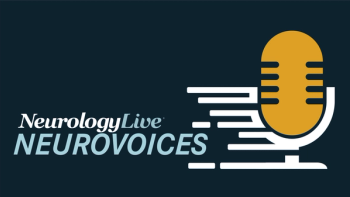
Musical Intervention Program May Improve Quality of Life for Pregnant Mothers With Epilepsy
Key Takeaways
- The "Lullaby Project" may improve quality of life for pregnant women with epilepsy, though further research is needed due to limited statistical power.
- Intervention participants showed a trend towards improved quality of life scores and positive emotions, despite not achieving statistical significance.
Participants in the intervention group also reported themes of increased connectivity, creativity, and positivity.
Preliminary data from a small-scale pilot study suggested that use of a musical intervention program such as the “Lullaby Project” throughout pregnancy may help better stabilize quality of life (QOL) for expecting mothers with epilepsy. The study was limited in that it was not powered for statistical significance; however, investigators concluded that further benefits should be explored in larger sample sizes.1
In the trial, patients in a specialized epilepsy and pregnancy program received standard pregnancy and epilepsy care (control; n = 7) while the other received the same care with an added musical intervention (intervention; n = 10). The added intervention, known as the Lullaby Project, pairs new and expecting parents and caregivers with progressional artists to write and sing personal lullabies for their babies, supporting maternal health, aiding childhood development, and strengthening the bond between parent and child.
Presented at the
Led by Sharon Ng, BASc, a graduate student at Harvard University, the changes suggested a trend towards greater positive stabilization through the added intervention, although this did not reach statistical significance (P = .23), likely because of the small sample size. The study authors also noted that the intervention group also demonstrated emerging themes of positive feelings such as connectivity, creativity, and positivity in the intervention group. Notably, 9 of 10 participants in the intervention cohort completed the study while only 4 of 7 did for the control group, further supporting the intervention’s feasibility.
READ MORE:
At baseline, investigators collected data on several different demographic measurables for both groups. These included mean age of participants (intervention: 33.9 yr vs control: 35.0 yr; P = .92), gestational age (intervention: 24.7 wks vs control: 19.3 wks; P = .20), mean QOLIE-31-P scores (intervention: 47.5 vs controls: 51.4; P = .31), mean DASS-21 anxiety scores (intervention: 5.1 vs control: 7.4; P = .56). Overall, the average length for participants to complete the intervention was 18 weeks (range, 9-29).
Using music as a therapeutic strategy during pregnancy has been researched before, with mixed results thus far. There have been some evidence to suggest that listening to Mozart’s music, short-term and long-term, may contribute to decreases in epileptiform discharge and seizure frequency in children with epilepsy, even in refractory types; however, this has been regarded as a myth by many.2,3
A 2023 multiverse meta-analysis revealed that listening to music, let alone a specific kind of sonata, does not appear to have any beneficial effect on epilepsy. In that analysis, investigators concluded that unfounded authority, underpowered studies, and nontransparent reporting are among the main drivers of the Mozart effect myth. Using 3 independent analyses, the study authors found nonsignificant trivial-to-small summary effects for listening to Mozart KV448 or other musical stimuli on epilepsy or other medical conditions (g range: 0.03-0.43).3
REFERENCES
1. A Pilot Study of the Impact of a Musical Non-pharmacological Intervention (The Lullaby Project) on Pregnant Patients with Epilepsy. Presented at: 2024 AES Annual Meeting; December 6-10; ABSTRACT 3.439
2. Lin LC, Yang RC. Mozart’s music in children with epilepsy. Transl Pediatr. 2015;4(4):323-326. doi:10.3978/j.issn.2224.4336.2015.09.02
3. Oberleiter S, Pietschnig J. Unfound authority, underpowered studies, and non-transparent reporting perpetuate the Mozart effect myth: a multiverse meta-analysis. Scientific Reports. 2023;13:3175. doi:10.1038/s41598-023-30206-w
Newsletter
Keep your finger on the pulse of neurology—subscribe to NeurologyLive for expert interviews, new data, and breakthrough treatment updates.










